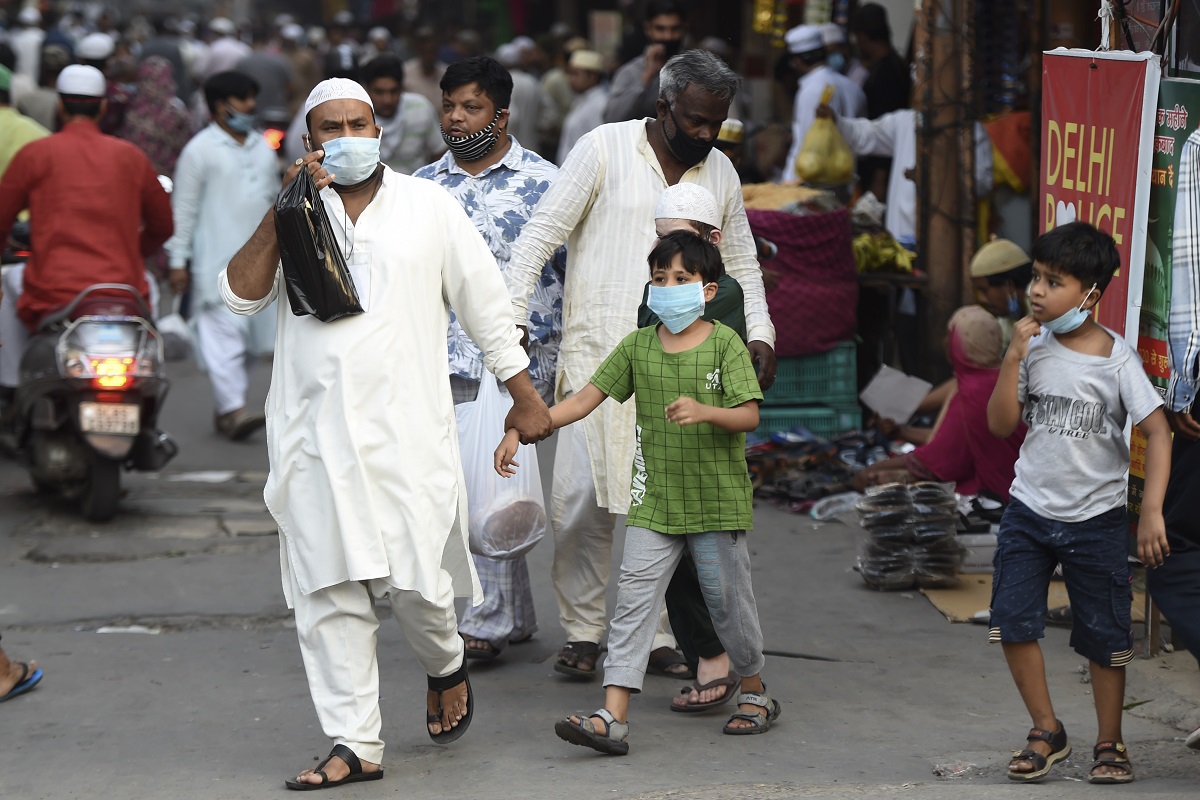“Eid is a festival of love and hugging your friends and neighbours, but now you cannot even shake hands due to coronavirus” says Old Delhi resident Akram Quereshi, summing up the sombre mood ahead of one of the main festivals of the country.
Eid is likely to be celebrated in the country on Monday after sighting of the Moon.
Advertisement
The scare of the pandemic, lockdown restrictions, as well as mass exodus of migrants from the city have deprived Eid of the usual festivity.
All the mosques in the city, including Jama Masjid and Fathepuri Masjid, are closed due to the pandemic. Alvida Namaz which is a congregational prayer at mosques in the month of Ramzan was offered by people at their homes on Friday.
The Namaz of Eid is also going to be offered by people indoors instead of visiting mosques and Eidgahs.
“People have been requested by us to stay indoors in view of the coronavirus even during Ramzan. They should offer Namaz of Eid at home instead of visiting the mosques,” said Shahi Imam Mufti Mukarram Ahmed.
Although shops have started opening as restrictions have been relaxed in lockdown 4.0, but the buzz and hustle and bustle of Eid is conspicuously missing.
The old Delhi area surrounding Jama Masjid is well known for its food for Sehri and Iftar to break fast during Ramzan and shopping for the festival. Now only a few shops, mostly of essential items, are open.
“Out of nearly 450 shops just around 20-22 are open. Eid festivities include purchase of new dresses and delicacies but the shops are closed for over two months. Most people have no enthusiasm or money for celebrating the festival due to coronavirus and lockdown,” said Qureshi who is president of Bazaar Matia Mahal Traders Association.
The sweetness of ‘Sewai’ (dish prepared with vermicelli, milk, sugar and nuts) that is associated with Eid is also missing this year due to the lockdown.
“The shops selling Sewai were a feature of Old Delhi. But most workshops in Jafarabad and Inderlok that supplied sewai have been closed and production has not started because workers there, mostly migrants, have left for their homes,” Qureshi said.
With coronavirus-induced lockdown paralysing commercial activities and services sector, financial problems faced by people have also diminished the joy associated with the festivals.
“I have received half my salary in past two months. In normal days we used to spend a considerable amount on new clothes for the whole family, but this time only kids will have new clothes,” said Wahid Ansari, an employee of a wholesaler in Chandni Chowk.
Besides financial problems, people are also worried about going out and catching the virus.
“Celebrating with family and friends and visiting neighbours’ places on Eid is a must do but this time, we will limit such visits because you cannot risk health of your family for enjoyment,” said businessman Mohammad Abid.











